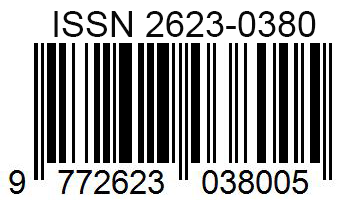Philosophy Study in the Development of Reading Teaching Materials Based on Cultural Wisdom of Betawi Fairy Tales
DOI:
https://doi.org/10.37640/jip.v15i1.1713Keywords:
Betawi fairy tales, Philosophy study, Teaching materialsAbstract
The purpose of this study was to examine the philosophical study contained in the development of reading teaching materials based on cultural wisdom of Betawi fairy tales for grade X science students at SMAN 107 Jakarta. This research was qualitative research with a descriptive method. Data collection techniques were carried out through library research on references related to the topics discussed namely teaching materials, readings, and Betawi fairy tales. The results of this research regarding the development of reading teaching materials based on cultural wisdom of Betawi fairy tales then were analyzed using three philosophical studies namely Ontology, Epistemology and Axiology. The Ontology study was employed to examine the development of reading teaching materials with cultural wisdom of Betawi tales. Next, Epistemology was formulated to design and make prototypes of the development of teaching materials so that they can be evaluated and get feedback from the parties involved. Subsequently, the axiology which focused on value of educational technology was intended to intrigue and promote a sense of humanity among students through the depiction of the characters told in the fairy tale.
Downloads
References
Abidin, Y., Mulyati, T., & Yunansah, H. (2015). Pembelajaran Literasi dalam Konteks Pendidikan Multiliterasi, Integratif dan Berdiferensiasi. Rizqi Press.
Allen, M. (2012). Leaving ADDIE for SAM: An Agile Model for Developing the Best Learning Experiences 1st Edition. https://www.alleninteractions.com/services/custom-learning/sam/elearning-development
Amandangi, D. P., Mulyati, Y., Yulianeta, Y., & Prasetyo, S. E. (2020). Web-Based Learning Design on Folklore Text for Intermediate Indonesian Language for Foreign Speakers (BIPA). In D. O’Shaughnessy, A. Sugiyama, K. Chen, M. Chang, & Y. Leung (Eds.), The 4th International Conference on Education and Multimedia Technology (pp. 150-155). ACM Digital Library. https://doi.org/10.1145/3416797.3416810
Anderson, M., & Anderson, K. (2003). Text Types in English 2. MacMillan.
Berg, B. L. (2007). Qualitative research methods for the social sciences, (6th ed.). Pearsons Education, Inc
Chatman, S., & Attlebery, B. (1993). Reading Narrative Fiction. MacMilllan.
Chesky, N. Z., Wolfmeyer, M. R. (2015). STEM’s what, why, and how? Ontology, axiology, and epistemology. In N. Z. Chesky & M. R. Wolfmeyer (Eds.), Philosophy of STEM Education: A Critical Investigation (pp. 17-43). https://doi.org/10.1057/9781137535467_2
Creswell, J. W. (1994). Research Design: Qualitative and Quantitative Approaches. Sage Publications.
Davidsen, K., & Cuandani, Y. (2021). Indonesian Stories for Language Learners. Tutle Publishing.
Franzen, J. (2012). Metaethics, ontology, and epistemology in american sociology: emile durkheim and gilles deleuze (Publication No. 67443) [Doctoral Dissertation, Department of Sociology Colorado State University]. Colorado State University MountainScholar.
Gerot, L., & Wignell, P. (1995). Making Sense of Functional Grammar. Antepodean Educational Enterprises
Ginting, P., & Sitomorang, H. (2008) Filsafat Ilmu dan Metode Riset. USU Press
Inriani, K (2017). Nilai Kearifan Lokal dalam Legenda Cerita Rakyat Muntok: Sebuah Kajian Pendidikan Karakter. In Seminar Bahasa dan Sastra Indonesia (pp. 167-177). Universitas Sriwijaya.
Jufriadi, J., Haryanto, H., Jafar, M. B., & Weda, S. (2019). Teachers’ Implementation of Pedagogy of Multiliteracies in Indonesian Context (A Case Study). IOSR Journal of Humanities and Social Science, 24(11), 35–42. https://doi.org/10.9790/0837-2411063542
Lestari, I. (2013). Pengembangan Bahan Ajar Berbasis Kompetensi. Akademia Permata.
Lwin, S. M. (2017). Asian folktales for teaching English in Asia. The Journal of Asia TEFL, 14(4), 773-777. http://dx.doi.org/10.18823/asiatefl.2017.14.4.12.773
Notoatmodjo, S. (2012). Metodologi Penelitian Kesehatan. Rineka Cipta
Nursalim, M. (2017). Landasan Ontologis, Epistemologis, Dan Aksiologis Dalam Penelitian Psikologi. Kalam, 7(2), 387-406. https://doi.org/10.24042/klm.v7i2.45
Pudjiati, D., & Zuriyati, Z. (2022). Students’ Perception of Cultural Values in “Travel” Poem through Youtube. IJLECR (International Journal of Language Education and Cultural Review), 8(1), 41-50. https://doi.org/10.21009/IJLECR.081.06
Rangel, A. E. (2019). The ontology, epistemology, and axiology of social and racial justice educators: an untapped resource to address the unequal educational outcomes for students of color and other non-dominant communities (Publication No. 35) [Doctoral Dissertation, San Jose State University]. San Jose State University ScholarWork. https://doi.org/10.31979/etd.3j85-dmm5
Ryan, R. M., & Deci, E. L. (2000). Intrinsic and extrinsic motivations: Classic definitions and new directions. Contemporary educational psychology, 25(1), 54-67. https://doi.org/10.1006/ceps.1999.1020
Setiawan, R. (2015). Study of Ontology, Epistomology and Axiology on Management. In The Second International Conference on Entrepreneurship (pp. 144-151). Universitas Ciputra Surabaya.
Surajiyo, S. (2019). Tanggung Jawab Moral dan Sosial Ilmuwan: Sikap Ilmiah Ilmuwan di Indonesia. In Conference On Communication and News Media Studies (pp. 414-414).
Surajiyo. (2007). Filsafat Ilmu dan Perkembangannya di Indonesia. Bumi Aksara.
Suriasumantri, J. (1996). Filsafat Ilmu sebuah Pengantar Populer. Pustaka Sinar Harapan.
Suriasumantri, J. (1990). Ilmu Filsafat. Pustaka Sinar Harapan.
Susena, D. & Rudito, B. (2017). Folklor Tambo Dibalik Randai dan Punen Dibalik Turu’ Kesenian Minangkabau dan Mentawai. Hamafira
Tiswardini, D. (2019). Tiga Aspek Utama dalam Kajian Filsafat Ilmu: Ontologi, Epistemologi, dan Aksiologi. In B. Denafri, E. Risnawati, N. Nasrul, & D. Fatinova (Eds.), Prosiding Seminar Nasional Bahasa dan Sastra (pp. 141–146). Universitas Pamulang.
Wahana, P. (2008). Menguak Kebenaran Ilmu Pengetahuan dan Aplikasinya dalam Kegiatan Perkuliahan. Jurnal Filsafat, 18(3), 273-294. https://doi.org/10.22146/jf.3528
Downloads
Published
Issue
Section
License
Copyright (c) 2023 Venti Mawarni, Danti Pudjiati

This work is licensed under a Creative Commons Attribution-ShareAlike 4.0 International License.
Authors agree that this article remains permanently open access under the terms of the Creative Commons Attribution-ShareAlike 4.0 International License






















